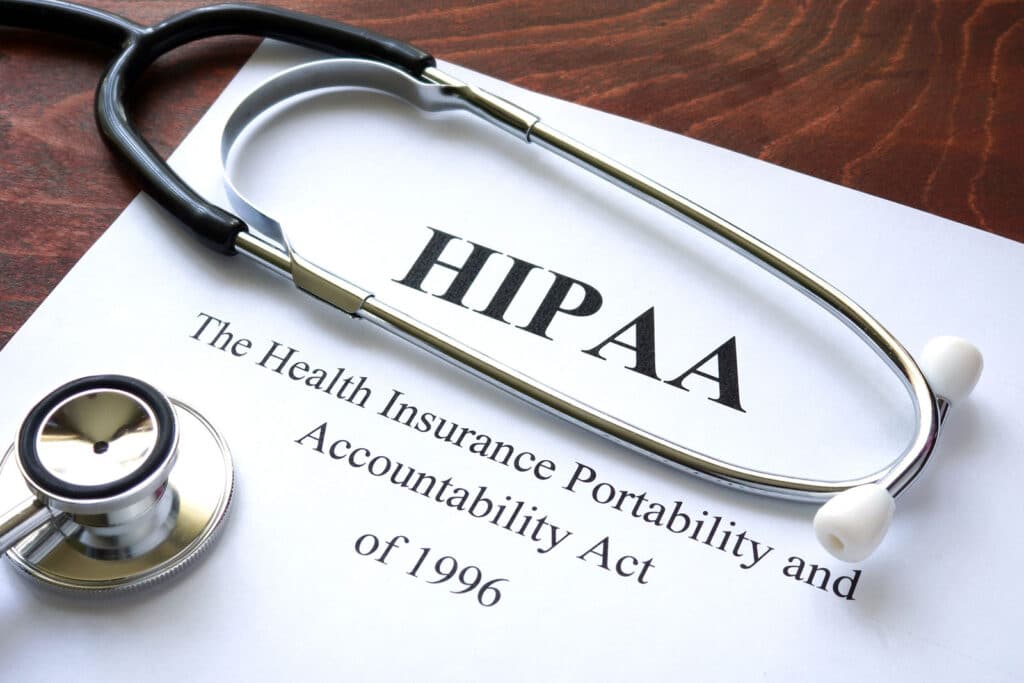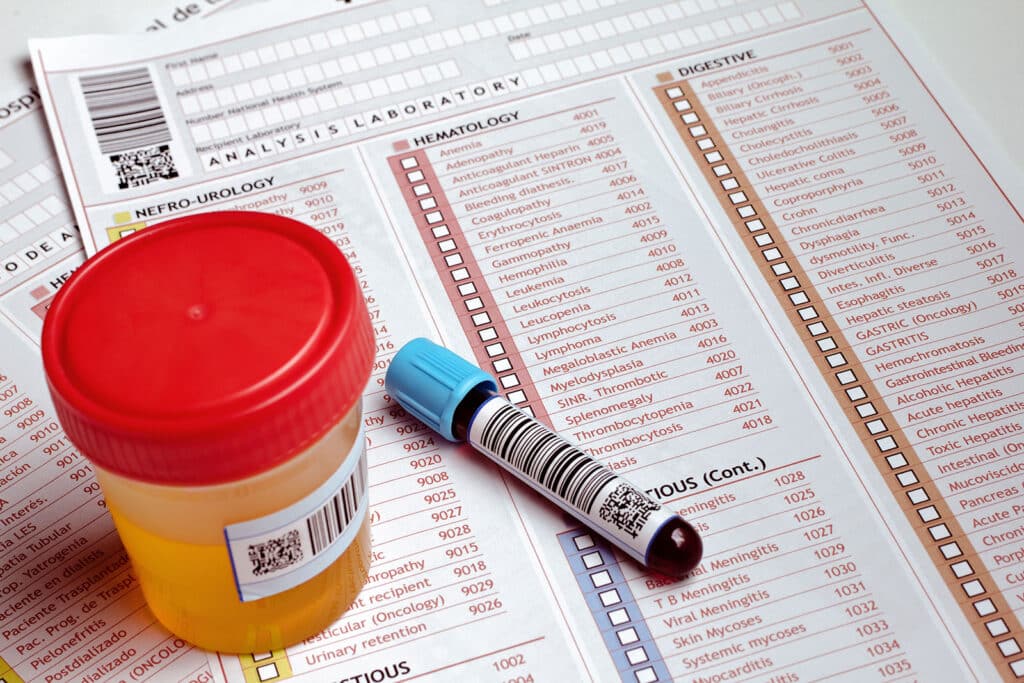If you need medical attention while using an illegal substance or drug, chances are that your doctor will find out about your drug problem. So, what happens if doctors find drugs in your system?
In most cases, the lab test results of private drug testing are protected by HIPAA, which grants the right to medical privacy. However, if the laboratory test is done as part of a court case, arrest, parole, etc., doctors may be obligated to share the results with law enforcement.
In today’s guide, we’ll answer this question in further detail by walking you through everything you need to know about physician-patient privileges in that situation.

Table of Contents
- What Happens If Doctors Find Drugs in Patients’ Systems?
- Will Doctors Report to the Police If They Find Illicit Drugs in Patients’ Systems?
- How Long Do Drugs Stay in Your System?
- Are All Blood Samples Tested for Drugs?
- Do Illegal Drugs Affect Insurance?
- Should You Disclose Drug Problems with Your Doctor?
- Wrap Up
What Happens If Doctors Find Drugs in Patients’ Systems?
If you’ve recently taken any illegal substance and your doctor tests your blood or urine for drugs, it’ll show up in the test.
However, medical records are confidential and protected by the 1996 Health Insurance Portability and Accountability Act (HIPAA).
Additionally, doctors also swear an oath to abide by a code of ethics, including Patient-Doctor confidentiality, which prevents them from disclosing private information about their medical status without their consent.
So, in everyday situations, doctors are obligated to keep the results of the drug test between you and them.
However, there are a few situations when a doctor has to share patients’ medical records, including drug tests, especially when a court order is involved.
Will Doctors Report to the Police If They Find Illicit Drugs in Patients’ Systems?
Doctors or toxicology medical review officers won’t routinely report to the police when they find illegal drugs in patients’ systems. This applies whether you let them know about using an illegal substance or if they find it themselves through blood or urine analyses.

This code is meant to develop trust between patients and doctors, encouraging them to be open about health and drug problems and receive medical help.
In fact, one of the main reasons the code was established was to encourage substance abusers to seek medical help without worrying about their secrets coming out.
With that being said, doctor-patient confidentiality has its limits, and there are exceptions to the rule that constricts when it applies.
Situations When Doctors Are Obligated to Report to the Police
When Patient-Physician Confidentiality interferes with the law, doctors must oblige and share medical information with law enforcement.
The specific situations may vary depending on local laws where you live. For example, some states limit patient-doctor privileges to civil cases only.
One of the most common cases when doctors have to report to the police is when a court order is invoked and mandatory, such as DUI arrests, probation, custody, etc.
Some employers may also require drug testing as a part of their employment process. However, in those cases, the tested employee will have to sign a waiver of consent to disclose the results.
Doctors are also obligated to involve law enforcement if harm is involved. This includes self-harm, child abuse, elderly abuse, physical injuries, gunshot wounds/burns, etc.
How Long Do Drugs Stay in Your System?
The length of a drug’s stay in human systems varies greatly depending on the chemical nature of the drug in question.
However, one thing you should know here is that the length of the effects is not necessarily linked to how long they stay in the blood.

In other words, a drug’s effect may wear off completely. However, traces of that drug could still be detected in the body for up to several months after taking it.
Besides the type and amount of drugs used, several factors may also play a noticeable role in determining how long it stays in your system. These include but aren’t limited to:
- Weight
- Metabolic rate and factors that affect it
- Drug interactions
- Physical activity and hydration levels
- Genetic factors like gender and ethnicity
Are All Blood Samples Tested for Drugs?
When you undergo a blood test, you might notice that several vials are filled with your blood sample. These vials are used for various specific tests, often referred to as “kits” or “panels.” However, not all routine or private blood work automatically includes tests for drug use. Drug screens, including tests for opioids, amphetamines, and other substances, are typically conducted only when specifically requested by you or your healthcare provider.
Types of Drug Testing:
One of the types of tests for substance use is Blood tests, which can provide a snapshot of recent drug use, especially when it comes to prescription drugs, including benzodiazepines, barbiturates, tetrahydrocannabinol (THC), and opiates such as codeine, and oxycodone. While blood testing can detect some drugs like methamphetamine and cannabis, urine drug tests or urine drug screens are more commonly used for a comprehensive analysis of drug use. These screens can reveal the presence of a wide variety of substances, including opioids and other prescription medications.
Positive Drug Test Results:
A positive test result can occur for several reasons, including the use of prescription medications, over-the-counter drugs, or illegal substances. It’s important to understand that false positives can also happen, particularly with certain medications or when testing for specific substances. In such cases, confirmatory testing is crucial to validate the initial results.
Implications of Positive Results:
If you receive a positive drug test result, your healthcare provider will typically discuss your medical history and any medications you are currently taking. This is to ensure that any positive drug test is accurately interpreted, particularly when it comes to substances such as fentanyl or methamphetamine. Confirmatory testing may be conducted to verify the type of drug in your system and rule out any false positives.
In summary, while blood samples can be tested for drug use, such testing is not automatically included in routine testing unless specifically requested. The interpretation of drug test results, whether from blood or urine samples, requires careful analysis and confirmatory testing to ensure accuracy and account for potential false positives.
Do Illegal Drugs Affect Insurance?
Another thing that some people might be concerned about is whether drug detection could affect insurance, whether it’s health or car insurance. This includes canceling the policies or increasing its rates.
Since your test results are protected by HIPAA and doctor-patient confidentiality, your insurance provider shouldn’t have access to this type of information.
Not only that but there are some cases and policies that involve coverage for substance abuse treatment.
So, you don’t have to worry about your health insurance being affected by the results of your drug tests.
Should You Disclose Drug Problems with Your Doctor?
The short answer to this question is yes, as your doctor’s main obligation is to keep you healthy and safe!

Since your doctors are obligated to keep your medical records and history confidential, you should always disclose any health or drug abuse problem to your doctor to receive proper help.
Additionally, some illicit drugs can actually cause a variety of adverse effects or even interact with other treatments that you might need.
By letting your medical care providers know about any drugs in your system before administering treatment, you can save them a lot of valuable time and avoid any serious interactions from any drugs you have been taking.
Wrap Up
Taking care of your health is your doctor’s number one priority. For that reason, you should always trust your healthcare professionals or medical professionals and disclose all information about any drugs you have been taking to receive proper medical help.
As you can see, doctors aren’t allowed to reveal any of your medical history or records unless required by the law.
Not only that, but you shouldn’t also worry about your medical insurance being affected by drug abuse.
FAQ
What determines if a doctor reports a patient’s drug use to authorities or transfers them to rehab, especially in overdose cases?
Can your doctor refuse to give you the needed pain medication?



